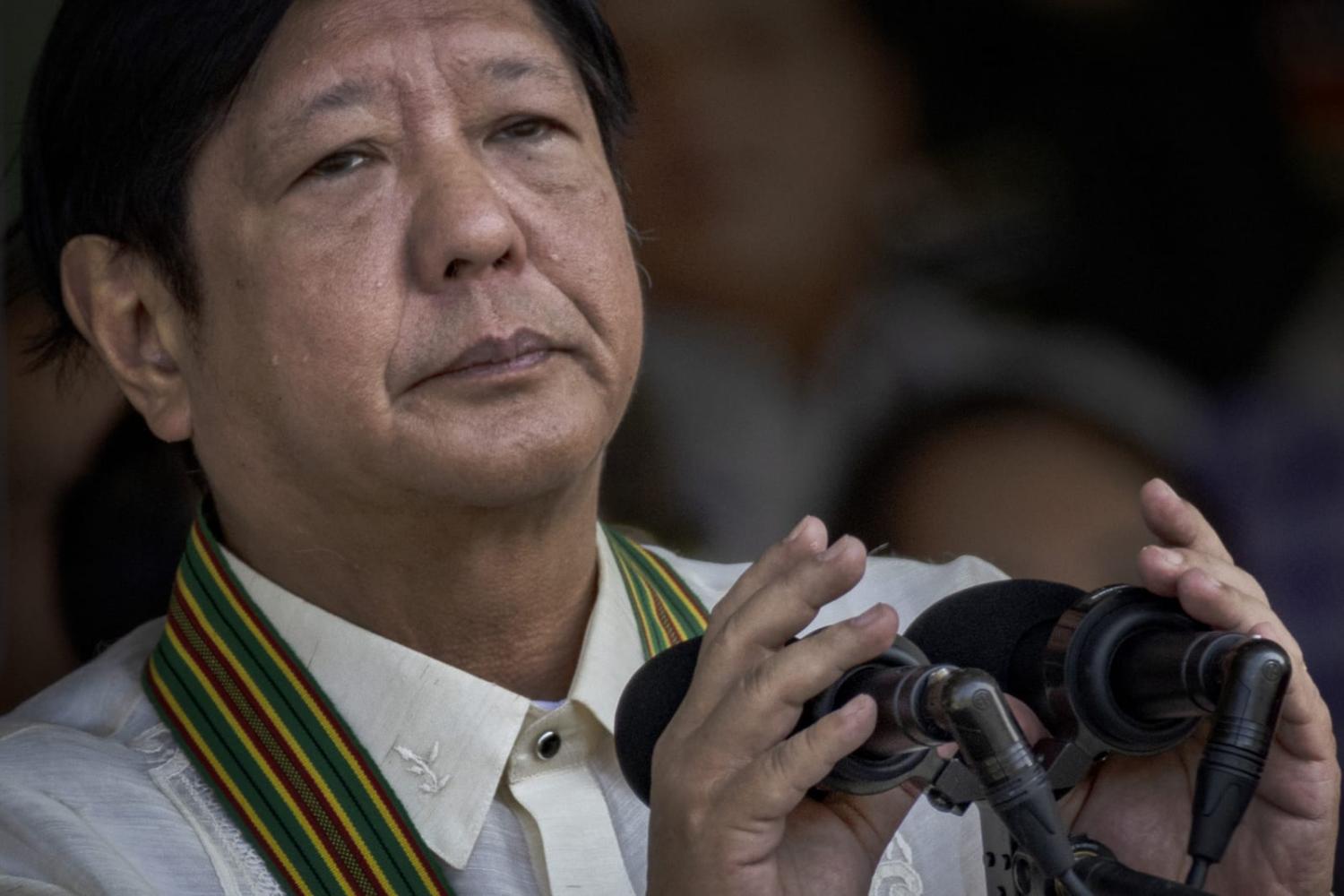Almost two years since it was first announced, the AUKUS submarine deal between Australia, the United Kingdom and the United States hasn’t been getting much love across Southeast Asia. Despite repeated reassurances by top US and Australian officials, with Foreign Secretary Penny Wong categorically vowing “Australia will never seek to acquire nuclear weapons” in a recent interview with Singapore’s media, key regional states remain unconvinced.
While Malaysia warned against “any provocation that could potentially trigger an arms race or affect peace and security in the region”, Indonesia, the current chair of the Association of Southeast Asian Nations, implied that AUKUS could potentially undermine “peace and stability in the region”. And even though Australia is set to receive nuclear-powered yet conventional-weapons-carrying submarines, Indonesia still insisted on potential proliferation risk, thus calling on its southern neighbour to “remain consistent” in fulfilling its obligations under the Non-Proliferation Treaty.
As if that weren’t enough, top Indonesian officials are contemplating restriction of Australian submarine passage through the country’s waters in the name of international law and strategic neutrality, while The Jakarta Post issued a spirited editorial deriding Canberra as the “self-appointed deputy sheriff in this part of the world for the United States”. For their part, two vital ASEAN states of Vietnam and Singapore, which have developed robust defence ties with the West due to shared concerns over China, have also settled on a combination of strategic equivocation or tortured neutrality.
Not to mention, public criticism at home from no less than former prime minister Paul Keating on the Labor side and former PM Malcolm Turnbull of the Liberals who have raised concerns over the value and viability of the massive $368 billion submarine deal. Even non-partisan analysts have warned of potential mission creep, namely Australia getting dragged into a conflict over Taipei, which “is more than 7000 kilometres from Sydney”.
There is, however, one notable exception to the generally lukewarm, if not hostile reception to AUKUS. And that, quite ironically, is the Philippines, which until recently was under the thumb of an unabashedly pro-Beijing populist, Rodrigo Duterte.
Shortly after the recent AUKUS confab in California that gathered the leaders of the three partnered states, the Philippine Department of Foreign Affairs released a statement in which it praised AUKUS as a critical component of important “partnerships or arrangements in the Indo-Pacific region”, which collectively “support our pursuit of deeper regional cooperation and sustained economic vitality and resilience”.
Although Manila, as one of ASEAN’s founding members, emphasised the importance of upholding “ASEAN’s central role in the regional security architecture”, it openly characterised AUKUS as “essential to our national development and to the security of the region”.
Interestingly, even the former administration, although not Duterte himself, also backed AUKUS when it was first announced in September 2021. Then Philippine foreign secretary Teodoro Locsin Jr. enthusiastically supported the pact as an indispensable step towards “restor[ing] and keep[ing] the balance” of power in the region in order to check China’s maritime ambitions.

The convergence of three main factors explains the seeming “Philippine exceptionalism” in ASEAN. First of all, the Philippines, notwithstanding its deeply troubled democracy, has considerable ideological affinity with the West. Largely built on American colonial legacy, the Philippines’ political system is the closest version of a liberal democracy in Southeast Asia. Such values-based alignment with the West has been clearly on display since Russia’s invasion of Ukraine. Not only has President Ferdinand Marcos Jr. openly sympathised with Ukraine’s patriotic struggle, but the Philippines is also the only Southeast Asian state to have consistently voted in favour of Ukraine in all key United Nations votes in the past year.
Second, the Philippines is the only Southeast Asian state to have not only a Mutual Defence Treaty with Washington but also a Status of Visiting Forces Agreement with Australia. And over the past decade, the Philippines has hosted massive wargames along with the United States, Australia and increasingly Japan. And under Marcos Jr., the Southeast Asian country is pursuing a SOVFA-style agreement with Japan and, more broadly, a trilateral Japan-Philippine-US (JAPHUS) security partnership, especially in light of growing concerns over potential Chinese invasion of neighbouring Taiwan. In many ways, Manila views AUKUS as a potential complement to the emerging JAPHUS, with both Washington-led trilateral security partnerships aiming to constrain China’s maritime ambitions across the so-called First and Second Island chains.
Finally, the Philippines’ support for a US-led “integrated deterrence” strategy against China is also based on the country’s unique sense of vulnerability as well as lingering frustrations with ASEAN. Despite its proximity to major flashpoints, especially Taiwan and the South China Sea, Manila is yet to develop a minimum credible defence posture, thanks to decades of internal conflict, bureaucratic corruption and overreliance on US support. Meanwhile, the Philippines has been deeply disappointed by ASEAN’s inability to unify on and finalise a legally-binding Code of Conduct with Beijing amid festering disputes in adjacent waters. Nor has ASEAN supported the Philippines’ landmark arbitration award victory against China based on the United Nations Convention on the Law of the Sea (UNCLOS).
As a result, the Philippines hopes to counterbalance China’s maritime aggression through a diversified network of alliances, including AUKUS but also the emerging JAPHUS.

